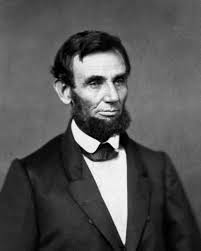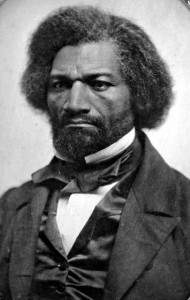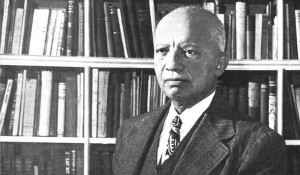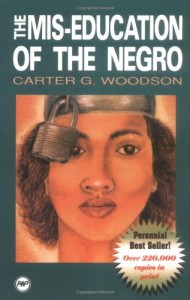Black History Month, February 2015
Black History Month was created in 1926 in the United States, when historian Carter G. Woodson and the Association for the Study of Negro Life and History announced the second week of February to be “Negro History Week. This week was chosen because it coincided with the birthday of Abraham Lincoln on February 12 and of Frederick Douglasson February 14, both of which dates Black communities had celebrated together since the late 19th century.[1]
At the time of Negro History Week's launch Woodson contended that the teaching of black history was essential to ensure the physical and intellectual survival of the race within broader society: “If a race has no history, it has no worthwhile tradition, it becomes a negligible factor in the thought of the world, and it stands in danger of being exterminated. By 1929 The Journal of Negro History was able to note that with only two exceptions officials with the State Departments of Educations of “every state with considerable Negro population” had made the event known to that state's teachers and distributed official literature associated with the event.”Churches also played a significant role in the distribution of literature in association with Negro History Week during this initial interval, with the pages of the mainstream and black press aiding in the publicity effort.
Negro History Week was met with enthusiastic response; it prompted the creation of black history clubs, an increase in interest among teachers, and interest from progressive whites. Negro History Week grew in popularity throughout the following decades, with mayors across the United States endorsing it as a holiday. In 1976 Black History Week was expanded to Black History Month.Today it is celebrated throughout the United States, England and Canada
Carter G, Woodson (1875-1950) African-American historian, author, journalist and the founder of the Association for the Study of African American Life and History as well as the Journal of Negro History. Woodson was one of the first scholars to study African American history. In February 1926 he announced the celebration of “Negro History Week”, which over time became celebrated as Black History Month.
Woodson was a scholar and activist. Born to parents who had been enslaved, he spent his entire life promoting the study of African American life. He attended the University of Chicago earning both a BA and MA. He attended Harvard, becoming the second African American, after WEB DuBois to earn a PhD. He taught in public schools before joining the faculty at Howard University.
Convinced that the role of African American history and the history of other cultures was being ignored or misrepresented among scholars, Woodson saw a need for research into the neglected past of African Americans. Along with Alexander L. Jackson, Woodson published The Education of the Negro Prior to 1861 in 1915. In that same year he organized the Association for the Study of Negro Life and History (now the Association for the Study of African American Life and History), and published The Journal of Negro History. In addition to his first book, he wrote A Century of Negro Migration, which continues to be published by the Association for the Study of African American Life and History (ASALH). He studied many aspects of African-American history. For instance, in 1924, he published the first survey of free black slave-owners in the United States in 1930.
After leaving Howard University because of differences with its president,Woodson devoted the rest of his life to historical research. He worked to preserve the history of African Americans and accumulated a collection of thousands of artifacts and publications. He wrote that African-American contributions “were overlooked, ignored, and even suppressed by the writers of history textbooks and the teachers who use them.”Race prejudice, he concluded, “is merely the logical result of tradition, the inevitable outcome of thorough instruction to the effect that the Negro has never contributed anything to the progress of mankind.”
In 1926, Woodson pioneered the celebration of “Negro History Week”,designated for the second week in February, to coincide with marking the birthdays of Abraham Lincoln and Frederick Douglass.The week of recognition became accepted and has been extended as the full month of February, now known as Black History Month.
Woodson believed in self-reliance and racial respect, values he shared with Marcus Garvey, and was regular columnist for Garvey's weekly Negro World. His political activism placed him at the center of a circle of many black intellectuals and activists from the 1920s to the 1940s. He corresponded with W. E. B. Du Bois, John E. Bruce, Arturo Alfonso Schomburg, Hubert H. Harrison, and T. Thomas Fortune among others. Even with the extended duties of the Association, Woodson made time to write academic works such as The History of the Negro Church (1922), The Mis-Education of the Negro (1933), and others, which continue to have wide readership.



